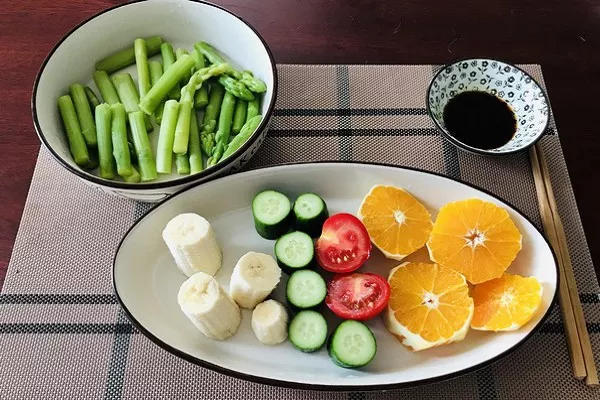Maintaining a healthy weight is essential for overall well-being. Many people struggle to lose weight despite their best efforts, often involving strict dieting and endless hours of exercise. However, losing weight doesn’t have to be complicated or challenging. The key to achieving and maintaining a healthy weight lies in making simple dietary changes that are sustainable over time. In this article, we’ll discuss what foods to eat to be healthy and lose weight.
Focus on Whole, Unprocessed Foods
One of the most effective ways to lose weight and improve your health is to consume whole, unprocessed foods. These foods are nutrient-dense, meaning they provide your body with essential vitamins, minerals, and antioxidants, and they don’t contain empty calories or added sugars. Examples of whole, unprocessed foods include fresh fruits and vegetables, whole grains, lean proteins, and healthy fats. Incorporating these foods into your diet can help you feel fuller for longer, resulting in fewer cravings and less snacking between meals.
Eat More Protein
Protein is an essential macronutrient that plays a crucial role in weight loss. It helps maintain muscle mass while burning fat, keeping you feeling full and satisfied. Eating protein also boosts your metabolism, which means your body burns more calories even at rest. Good sources of protein include lean meats, fish, eggs, beans, and legumes. Vegetarians and vegans can get their protein from plant-based sources such as tofu, tempeh, quinoa, and lentils.
Choose Healthy Fats
Contrary to popular belief, not all fats are bad for you. In fact, some fats are essential for good health and can even aid in weight loss. Healthy fats such as avocados, nuts, seeds, and fatty fish like salmon are rich in omega-3 fatty acids, which have anti-inflammatory properties and can lower your risk of heart disease. Incorporating these healthy fats into your diet can help you feel more satiated, reduce cravings for unhealthy snacks, and even boost your metabolism.
Incorporate Fiber-rich Foods
Fiber is another crucial nutrient that plays a significant role in weight loss and overall health. Eating fiber-rich foods can help you feel fuller for longer, reducing your urge to snack on unhealthy foods throughout the day. Fiber also promotes healthy digestion and regular bowel movements, which can prevent constipation and other digestive issues. Some good sources of fiber include whole grains, fruits, vegetables, beans, and legumes.
Limit Processed Foods and Added Sugars
Processed foods and added sugars are among the most significant contributors to weight gain and poor health. These foods offer little nutritional value and often contain high amounts of calories, unhealthy fats, and artificial additives. Additionally, consuming too much sugar can lead to insulin resistance, which can increase your risk of type 2 diabetes and other chronic diseases. To promote weight loss and good health, it’s essential to limit your intake of processed foods and added sugars.
Drink Plenty of Water
Drinking plenty of water is crucial for weight loss and overall health. Staying hydrated helps flush out toxins from your body, aids in digestion, and keeps you feeling full and satisfied. Drinking water before meals can also help curb your appetite, leading to reduced calorie intake. Aim to drink at least eight glasses of water per day, or more if you’re physically active or live in a hot climate.
Practice Mindful Eating
Mindful eating involves paying attention to your food choices, listening to your body’s hunger and fullness signals, and eating slowly and without distractions. This practice can help you tune in to your body’s needs, leading to better food choices and reduced calorie intake. Eating mindfully can also reduce stress, improve digestion, and enhance your overall sense of well-being.
In conclusion
Losing weight and maintaining a healthy weight doesn’t have to involve strict diets or intense exercise regimens. By making simple dietary changes such as focusing on whole, unprocessed foods, increasing your protein intake, choosing healthy fats, incorporating fiber-rich foods into your diet, limiting processed foods and added sugars, drinking plenty of water, and practicing mindful eating, you can achieve your weight loss goals while improving your overall health and well-being. Remember that sustainable weight loss is a journey, and small changes made consistently over time can result in significant improvements in your health and quality of life.
Related topics:


